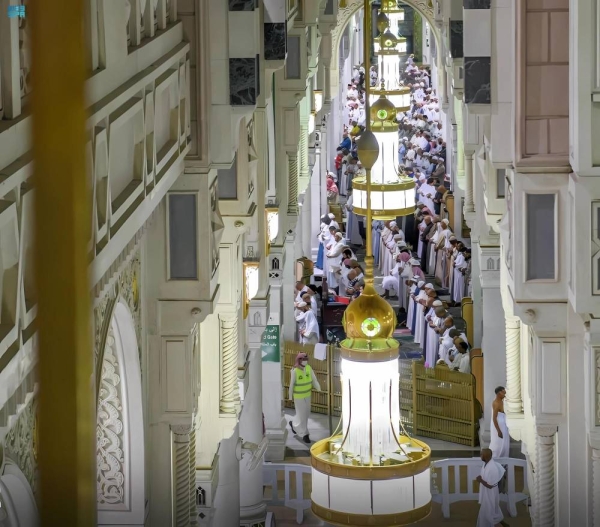
Eid al-Fitr celebrations in Britain were muted for the second year in a row amid the challenge of holding the religious festival with Covid restrictions in place.
The festival marks the end of Ramadan and typically starts with people attending mosque for morning prayers followed by family and friends getting together for a celebratory meal.
However, families and mosques have had to adapt again this year. The Muslim Council of Britain (MCB) urged worshippers to “take the utmost care when protecting our loved ones and observing public health guidance”.
Mosques have sought to adapt their services to ensure Eid prayers are Covid-safe, restricting large indoor gatherings.
Imran Ahmed, chairman of the Neeli Mosque , in Rochdale, said: “Eid is about visiting friends and family and sharing the love, embracing people, shaking hands and hugging, all things we’ve not been able to do this year.
“We’re the only mosque in Rochdale that had four services this morning but we still had to turn 50 or 60 people away because social distancing meant we didn’t have enough space. Normally we can host over 750 people but today we were down to 300.”
As well as running smaller services, Neeli Mosque has reduced the length of its morning prayers to minimise the time worshippers spend indoors.
More than 300 people have gathered at Cardiff Castle to celebrate Eid in the first of nine pilot events to test crowd gatherings in Wales, the largest outdoor event in the country since March 2020. The event was organised by the Muslim Council of Wales, Cardiff council and the Welsh government. Next month music, sport and cultural events will follow in Wales.
Abdul-Azim Ahmed, secretary-general of the Muslim Council of Wales, was at the castle with his two-year-old son, Jalal, and was impressed that checks at the gate had been thorough. “Welsh Muslims have had two Ramadans under lockdown. It’s been an incredibly tough period in which our normal prayers and devotion have had to be changed to ensure we keep each other safe. This event marks a light at the end of the tunnel, and opportunity to once again do things together and communally. We are very excited to be part of the pilot event.”
The Green Lane Mosque, in Birmingham, usually organises an Eid event in the park that is attended by about 60,000 people, one of the biggest Muslim events in Europe. This year they put on six socially distanced Eid gatherings in the mosque, which is one of the largest in the UK, each attended by about 750 people.
“Everything was heavily stewarded, and people were turning up with their face masks, following all precautions,” said Kamran Hussain, chief executive at the mosque. “People brought their own prayer mats and we made sure there was lots of ventilation. To make sure we controlled the numbers we actually launched a registration app and then people had to show their tickets on entry.”
In Walsall, Mohammed Arif, interim chair of the Union of Muslim Organisations, said people were relieved to be able to pray inside mosques this year, although celebrations have been more muted than usual due to the rocket and airstrike attacks between Gaza and Israel.
“For Muslims, prayer is a collective thing, and particularly when we pray together in the mosque, we stand shoulder to shoulder. Having this distance of two metres, that feels strange, it feels odd. So we look forward to the day when we’re actually standing shoulder to shoulder with the next person,” he said.
The MCB’s secretary-general, Zara Mohammed, said: “British Muslims have shown great resolve and patience throughout this pandemic, especially during Ramadan for the last two years, as we have adapted to innovative ways of observing the biggest occasions in our Islamic calendar.
“Many British Muslims will have also received their first or second vaccine dose during Ramadan. As we celebrate a #SafeEid, whether vaccinated or otherwise, it is important we continue to take the utmost care when protecting our loved ones and observing public health guidance, whilst looking forward with hope, determination and faith.”











